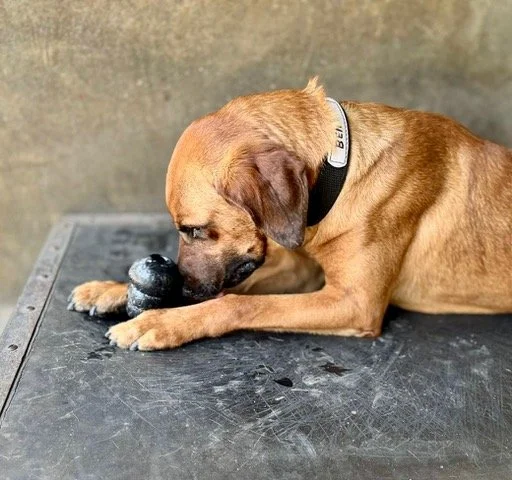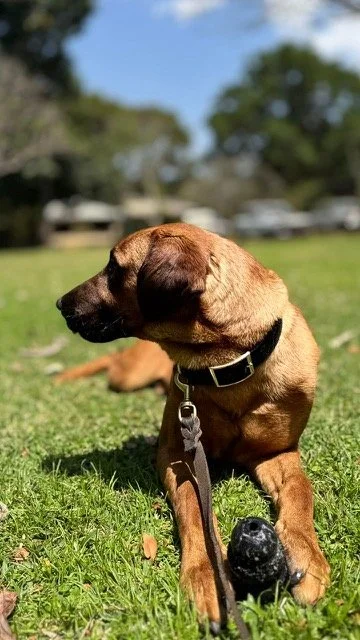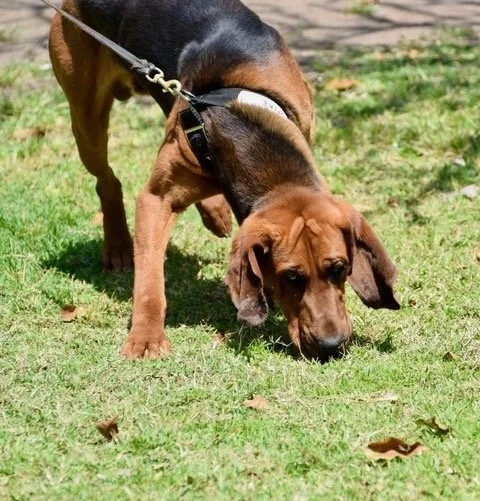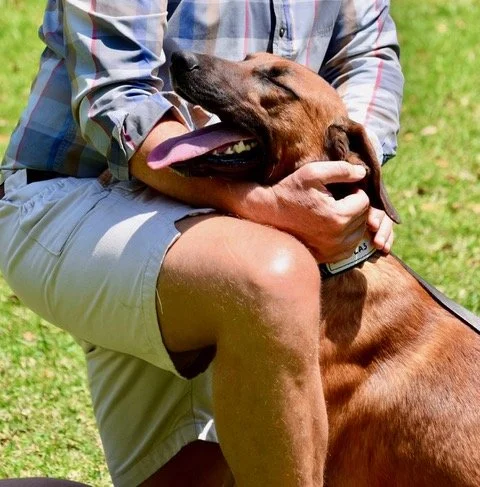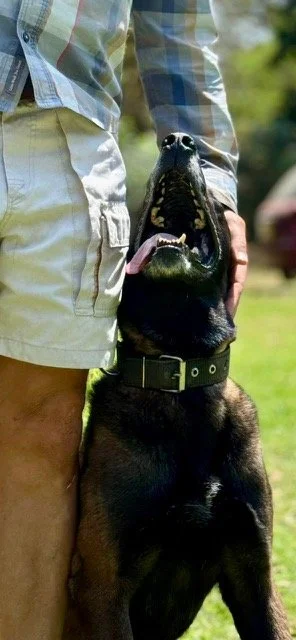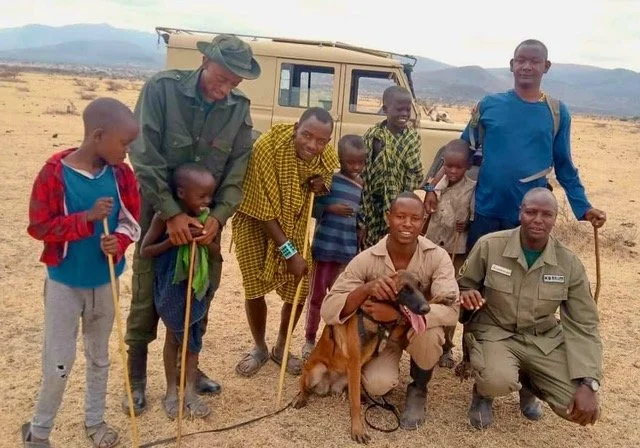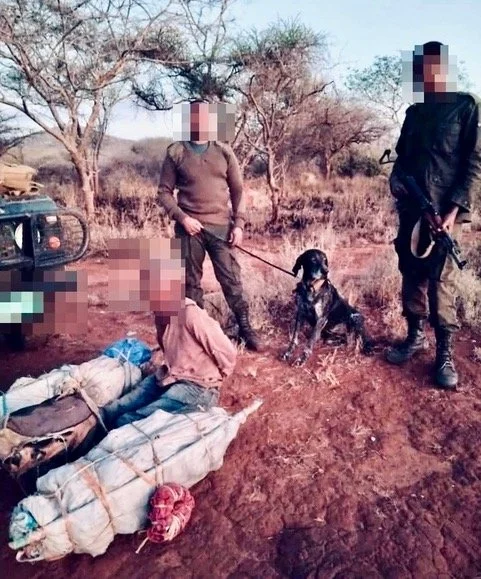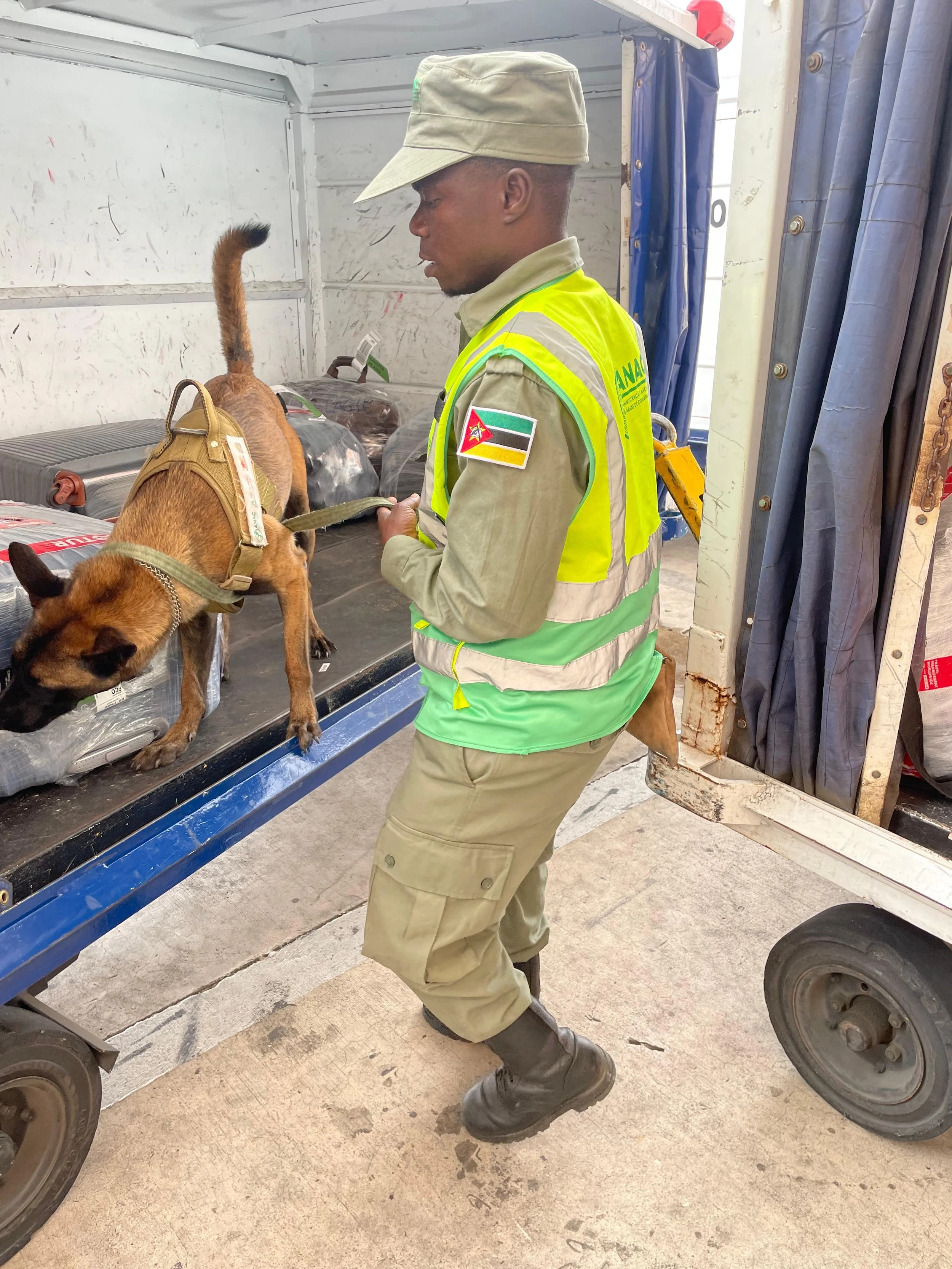News from the Kuru crew
The year just keeps gaining momentum, and there’s so much to share. I’m incredibly proud of all we’ve achieved in the last few months, and I hope you’ll enjoy reading about it as much as we’ve enjoyed making it happen.
First and foremost, let’s begin with some important introductions.
Our New Recruits
Our four new tracking dogs from South Africa finally arrived. It was a bit of an ordeal to get them here: they were delayed in Johannesburg, diverted via Uganda, and had to be looked after by friends along the way - but they’ve already begun acclimatising, and are starting their first training sessions.
From left to right, the future stars of conservation: Ben contemplating his Kong; Reuben soaking up some sun; Spike making scents of it all; and Nicolas and I making friends.
Serengeti
Kennels Made New
The Kuru-trained dogs working in Serengeti give Tanzania National Parks (TANAPA) an extra reach across 15,000 square kilometres - and, thanks to Elewana’s Land and Life Foundation, their kennels have had a total makeover.
They replaced rusted metalwork, repainted, expanded the mesh that protects the dogs from tsetse flies, and added a shade-net layer above the roof to cool things down. The difference it has made is remarkable: the dogs are enjoying safer, much more comfortable accommodation, and are better able to do their work. Thank you, Elewana.
Rocco’s Recovery
Rocco, one of our best tracking dogs in the Serengeti, recently gave us a scare. Handlers noticed he was weak and unsteady, and we weren’t sure what was wrong.
We rushed him to a trusted local veterinarian for testing, dialling in advice from experts all over the world. Finally, a retired veterinarian who used to treat our dogs landed on a diagnosis after simply watching a video of Rocco’s gait.
After weeks of rest and care at the Kuru Dog School, he has made a full recovery, and will soon be back at work. Without this incredible network of friends, dog gurus and people who pick up our calls in the middle of the night, Rocco would have been lost, dealing a huge blow to the unit and to the Serengeti.
Manyara
Abigail’s Redemption
Shaya, stationed at Manyara Ranch, had to return to the dog school after Abigail, his canine colleague, nipped his ear in a moment of mischief. Luckily it wasn’t a serious injury, and he is healed and back in action.
I’m glad to report that Abigail has since redeemed herself. We had set a scent trail for training near a Maasai boma, and her presence first attracted children, then the whole family. They joined the exercise, helping to lay tracks and watching her work, delighted by her ability.
These communities have long been allies – the eyes and ears, if you will – of the anti-poaching teams. Abigail reminded us all of the mission that unites us, and of how important these relationships are.
International Rangers Day
TANAPA celebrated International Rangers Day with a ceremony in Tarangire National Park, and invited the Manyara dog team.
It was a proud moment for the handlers and their dogs to stand alongside rangers from across Tanzania, representing the contribution that canine teams make to protecting wildlife and supporting national conservation efforts.
Ngorongoro
Canine Conservation for the Crater
The Ngorongoro Conservation Area is a crucial wildlife zone – and even more so since white rhinos have been introduced into the crater. Some of the NCAA senior management, who previously worked for Tanzania Wildlife Management Authority (TAWA) and TANAPA, have had direct experience of the difference dogs can make, and asked us to help them establish their own dog unit.
We’ll be helping them with tracking dogs to support ranger operations, and detection dogs at the main Ngorongoro Crater entrance. This entrance is the gateway to the entire Serengeti ecosystem: good detection dogs sniffing out wildlife products and bush meat promises significant impact. We can’t wait to start.
Mkomazi
Tracking Down Crime
Recently, rangers in the Mkomazi ecosystem spotted tracks in the hills and called in the dog unit.
Thomas picked up the trail and led the team to a poacher who had just killed a giraffe and was carrying large cuts of meat. He was apprehended on the spot.
A few days later, Finn sniffed out an astonishing 25 snares in one day. It’s a stark reminder of how many are still set in these landscapes – but also of how effective the dogs are at removing them before they can do harm.
Each success strengthens the message: those who try to poach in these protected areas will be caught. The more the dogs find, the fewer poachers dare to enter.
Further Afield
Watson and Big Life
I have always been inspired by Big Life Foundation and the incredible work they do - so it’s been a real honour to support their efforts with some canine assistance.
Watson is one of their Malinois pups that we’ve been training in the art of tracking, and I’m proud to say he’s ready for action. We recently dropped him and a trainer in Kenya to get him going on-site, so he can begin his career combating wildlife crime.
Mozambique Detection Dogs
The dogs we deployed to Mozambique’s Maputo Airport have settled in, and already have their noses to the ground.
They’re searching cargo and luggage airside, and though it’s still early days, we’ve been excited to see the teams adapting quickly and working smoothly.
Your generosity makes our work possible, and without our incredible supporters, we wouldn’t be able to keep up this fight to protect Africa’s precious tracts of wilderness.
Thanks as ever,
Will and the Kuru crew
